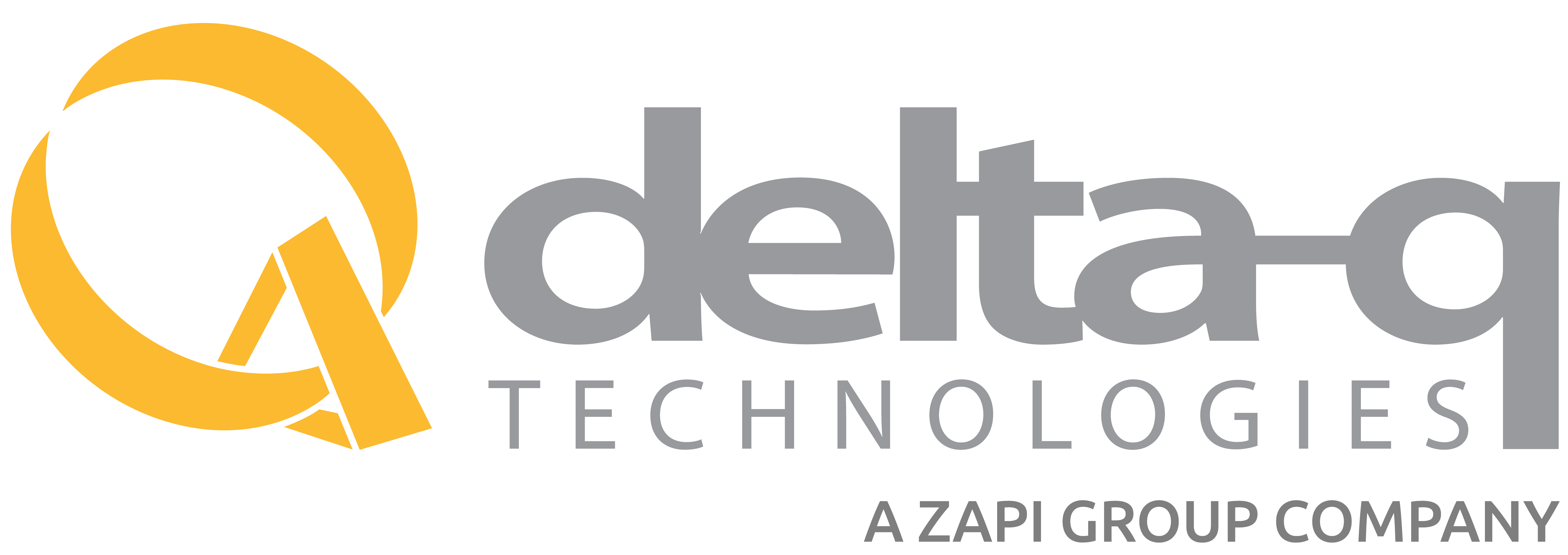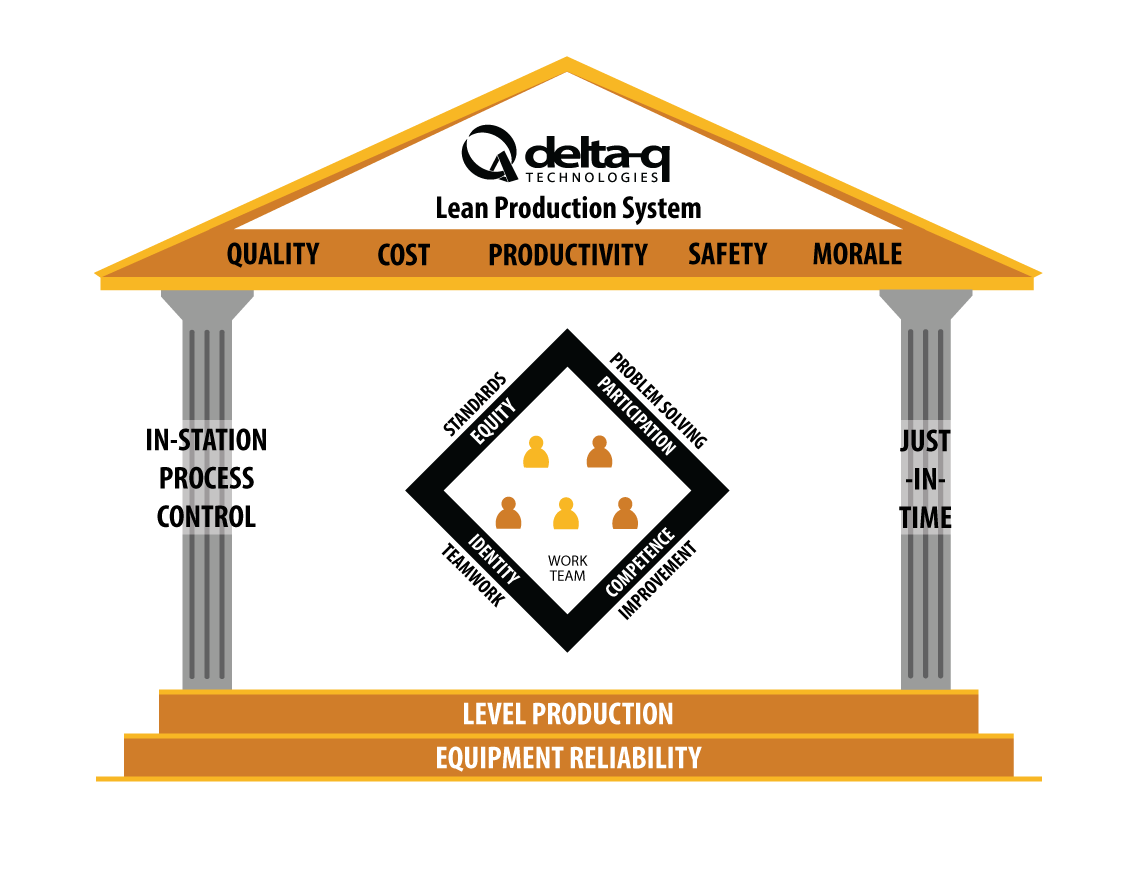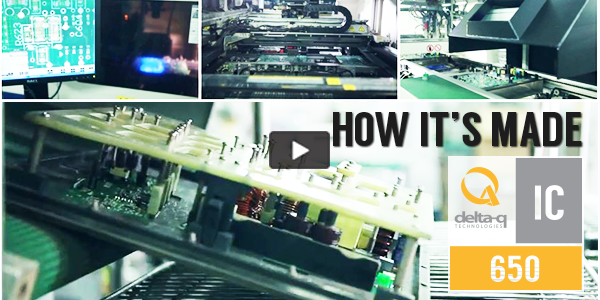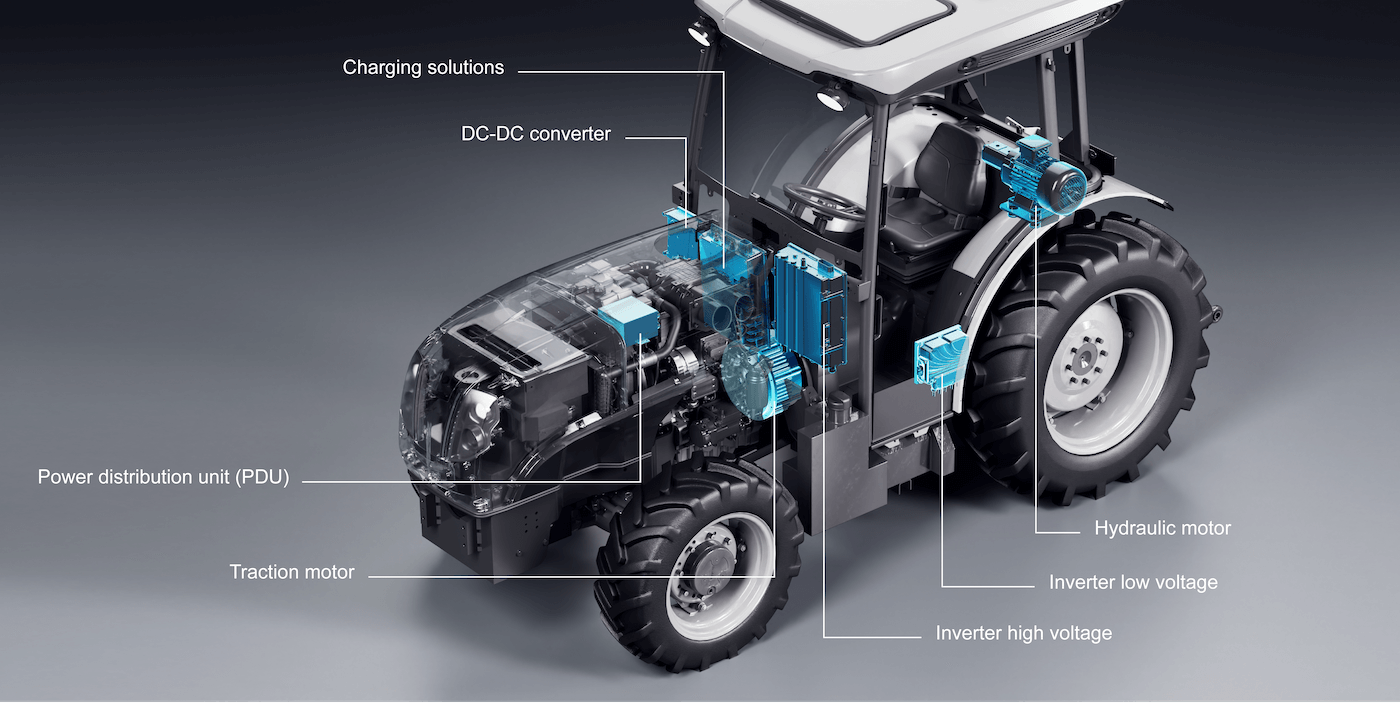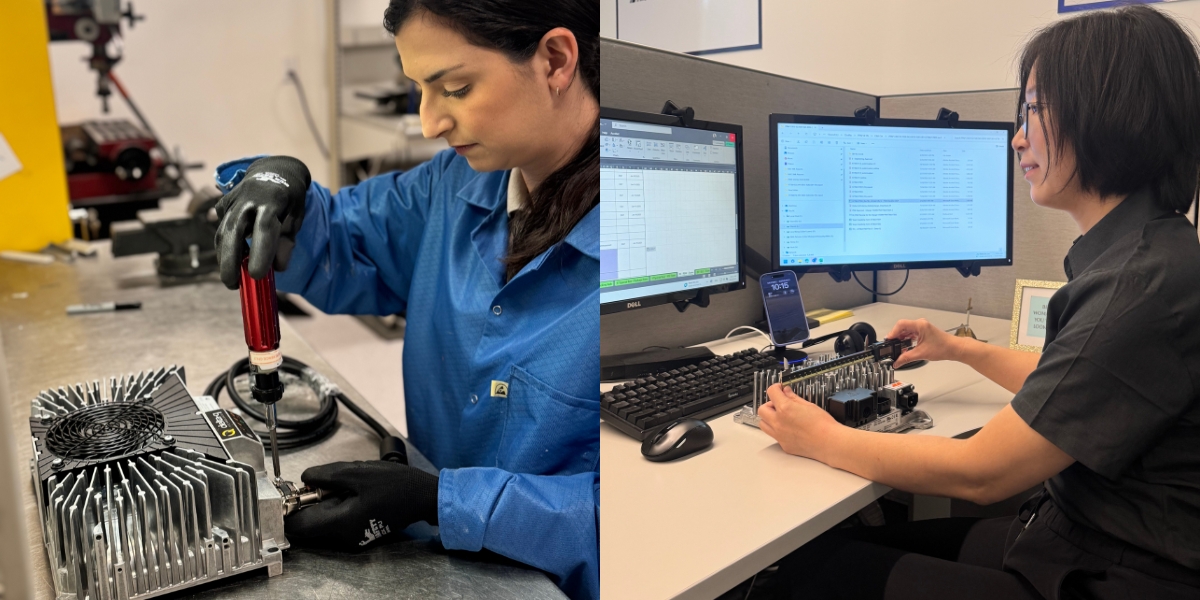Q: For our readers unfamiliar with lean manufacturing, what’s your definition of “lean”?
Lean is about removing non-value added activity. Value-added activities are those that lead to a product or service for which the customer is willing to pay. Delta-Q embodies a manufacturing philosophy of continuous improvement based on setting standards aimed at eliminating waste through participation of all employees. We made the video showing the assembly of the IC650 to show our customers the results of that effort. It gives the impression that customers and potential customers get when they audit our manufacturing organization.
Let me give some examples of “lean” at work. A customer isn’t willing to pay for overproduction—if we make extra chargers, a customer won’t buy them. If an operator has to go looking for components to make the chargers, that’s not value-added. Customer product quality requirements must always be met. Our goal is run our production pace at a takt time that exactly meets customer demand. So when we talk about “lean,” it’s about the processes and systems that remove non-value-added activities and lead to revenue from your customers.
Q: A lot of discussion in the media has focused on rising offshore manufacturing costs. With Delta-Q’s manufacturing organization based in China, what has the company done to counter rising costs?
We engage Flextronics (NASDAQ: FLEX) in a contract manufacturing relationship. Their High Reliability Solutions facility in southern China provides us advantages in terms of manufacturing and assembly expertise, purchasing power and a comprehensive nearby supplier network—all within 100 kilometers.
Labor rates in China have risen 12-15% annually for the past five years. Our focus has been on continuous improvement kaizen projects in working with Flextronics and our second tier suppliers. Kaizen is a Japanese word for “improvement,” and is a special focus for improvement. Cross-functional teams worked on a kaizen about labor efficiency—if we needed less labor to accomplish the assembly of the product, it could offset labor cost increases. We improved labor efficiency by 35% in 2014. It meant studying what everyone was doing and removing non-value added work within our facility through standardized work—part of our continuous improvement philosophy. Standardized work is a tool for continuous improvement that centers upon human motion, and combines the elements of a job into the most effective sequence, without waste, to achieve efficient production.
Q: How does this shifting economic environment affect your suppliers?
It definitely creates a challenge for our suppliers to remain healthy and competitive. Some of our visitors from Europe and North America take time to get used to the approach we use with tier 2 suppliers. The typical way to get your own costs down is to push suppliers for price reductions. Eventually, you push them to the point where they can’t reduce the price anymore, and don’t want your business because they have no margin. That’s not a healthy supply chain.
One example of how our approach is different comes from working with a magnetics supplier. We saw that this supplier was eager to learn lean manufacturing and drive continuous improvement. We looked at ways to improve efficiency and make gains in on-time delivery, quality and the cost of inputs. Our China team spent a lot of time working with them and made significant gains that could be split between the two companies. The effort made both companies stronger.
The difference with a continuous improvement supply chain like ours is that you have continuous growth. We can drive the activity directly, or coach them, or even learn together to improve. The other method is multiple quotes and cost comparisons, and giving the job to the lowest-priced option, but then there’s no quality control or on-time delivery. Companies using this method have no accounting for what poor quality costs them, or they have limited control over what is delivered. Delta-Q’s revenue growth is proof of how our customers want on-time delivery and a reliable, high-quality product.
Q: For Delta-Q’s customers—original equipment manufacturers (OEMs) of electric drive vehicles and industrial equipment—what lesson from lean methodologies can be applied in any context?
Continuous improvement is the key thing. The businesses that grow the most are always reconsidering how they operate, and challenge themselves with higher standards. It means measuring the things that you and your customers care about, and identifying paths to improve.
We did this with on-time delivery between 2013 and 2014. In 2014, we achieved 99% on-time delivery. In 2013, we measured this by our customer commitment. What this means is, a customer would ask for it by a certain date, and we would tell them whether this was possible, based on production capacity and inventory. Sometimes the customer would say ‘5 days’ and we would say ’10 days.’ The customer would say ‘that’s okay.’ We would commit to delivering in 10 days. In 2014, we changed it to on-time delivery according to customer request. If the customer said ‘5 days’ we delivered in 5 days. This is a tougher metric, but it’s more about aligning with customer demand. It meant creating more flexibility on the production line and making sure our logistics arrangements could meet those commitments.
Q: Delta-Q makes battery chargers, so how can lean be applied to charging batteries?
Equipment reliability is the foundation of our lean “house”—the systems and processes that guide our manufacturing processes. The equipment that we need to run the manufacturing line must run when needed, and it should run to the needed level. We practice “total productive maintenance” to make sure equipment doesn’t go down, through involving all team members. The maintenance and 5S method for equipment is standardized, where possible, to make those maintenance tasks simple, visual and sustainable.
Just apply that to batteries. In all of our core markets—golf, forklifts, floor care, scissor lifts and others—we see how batteries are sometimes not maintained properly. All of these machines are essential to the operations of the facility. Forced repair time is non-value added, so battery maintenance and charging habits should be paid special care. The costs of time taken to maintain batteries or ensure a full charging cycle is a lot less than the machine failing in the middle of a shift.
Q: Overall, why do you think lean manufacturing is important for Delta-Q and ultimately for the benefit of its customers?
Looking at the big picture, lean systems and processes are put in place to establish a culture of continuous improvement by eliminating waste. The bedrock of this system is equipment reliability. Without reliable equipment, we must build inventories (just in case), or invest in more equipment (due to unexpected downtime).
The floor of the system is level production. By smoothing or leveling customer requirements over time, we can better utilize our resources and ensure continuous production.
One pillar of the system is just-in-time. Delta-Q aims at a sequential production system that can produce and/or deliver the necessary parts, within the necessary time, in the necessary quality, using the minimum necessary resources. This system reduces work in process, limits the impact of upstream quality problems, and prevents over-production.
In-station process control (ISPC) is the second pillar of the system. Delta-Q strives to develop equipment and processes capable of detecting abnormalities and preventing them from being passed on to the following process or customer. The Delta-Q Quality System is solidly embedded within this pillar to ensure the manufacture of world-class quality products that meet the expectations of the customer.
The heart of the system are Delta-Q employees and its contract manufacturer in work teams, who are the best resources to suggest and implement improvements in their work areas.
The roof of the system, are the company objectives of improving safety, cost, quality, productivity, and morale, which is everything that our customers are looking for.
All of these parts of the house contribute to high-quality, defect-free products delivered on-time to the customer. By paying eliminating waste, we’re in a position to deliver products at higher quality and more features than other manufacturers.
Herbert Wang has more than 20 years experience in manufacturing, supply chain, plant and operations management in both industrial and automotive parts companies. Herbert has held a variety of roles including Plant Manager for Magna International and Group Director, Global Operations for Teleflex. Herbert has also worked with leading vehicle manufacturers as a lean manufacturing consultant, achieving manufacturing and organizational efficiency through process improvement.
Be the first to know about the latest Delta-Q news, products and early access to sample units!
